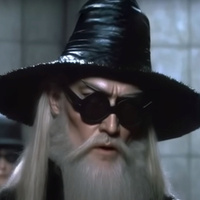Public majority in only 5 of the 16 NATO member states surveyed by @pewresearch say their country should use militar force to defend an ally from a hypothetical attack by Russiahttps://t.co/XrNrfZLlj0 pic.twitter.com/50bQvoqTqy
— Tat Atfender (@TatAtfender) February 10, 2020
EU - what's next?

- Guest
- Post n°51
 Re: EU - what's next?
Re: EU - what's next?

- Posts : 8696
Join date : 2016-10-04
- Post n°52
 Re: EU - what's next?
Re: EU - what's next?

- Posts : 52638
Join date : 2017-11-16
- Post n°53
 Re: EU - what's next?
Re: EU - what's next?

- Posts : 5620
Join date : 2016-01-26
- Post n°54
 Re: EU - what's next?
Re: EU - what's next?
Бугари победилиGargantua wrote:Public majority in only 5 of the 16 NATO member states surveyed by @pewresearch say their country should use militar force to defend an ally from a hypothetical attack by Russiahttps://t.co/XrNrfZLlj0 pic.twitter.com/50bQvoqTqy
— Tat Atfender (@TatAtfender) February 10, 2020


- Posts : 1037
Join date : 2017-10-28
- Post n°55
 Re: EU - what's next?
Re: EU - what's next?

- Posts : 10694
Join date : 2016-06-25
- Post n°56
 Re: EU - what's next?
Re: EU - what's next?
Zato na kraju izduvaju pa placu iako se u medjuperiodu cini da su bas pametni.

- Posts : 10694
Join date : 2016-06-25
- Post n°57
 Re: EU - what's next?
Re: EU - what's next?
Gargantua wrote:Public majority in only 5 of the 16 NATO member states surveyed by @pewresearch say their country should use militar force to defend an ally from a hypothetical attack by Russiahttps://t.co/XrNrfZLlj0 pic.twitter.com/50bQvoqTqy
— Tat Atfender (@TatAtfender) February 10, 2020
Hrabri klompari...

Bar se Danci ne kurce.
Oni su se 1995 upisavali u gace kod Dvora na Uni...

- Posts : 1037
Join date : 2017-10-28
- Post n°58
 Re: EU - what's next?
Re: EU - what's next?
Zuper wrote:Tute su uvek takve, uvek igraju na sve strane i nema veze sa kremljom.
Zato na kraju izduvaju pa placu iako se u medjuperiodu cini da su bas pametni.

- Guest
- Post n°59
 Re: EU - what's next?
Re: EU - what's next?
For the first time in Irish history, every single one of Ireland's 32 counties is represented by an elected Sinn Féin TD or MP. pic.twitter.com/E4jUmaEKmg
— Irish Unity (@IrishUnity) February 10, 2020

- Posts : 28265
Join date : 2015-03-20
- Post n°61
 Re: EU - what's next?
Re: EU - what's next?
Bungee jump wrote:Zuper wrote:Tute su uvek takve, uvek igraju na sve strane i nema veze sa kremljom.
Zato na kraju izduvaju pa placu iako se u medjuperiodu cini da su bas pametni.
aaaaa smešno

_____
#FreeFacu
Дакле, волео бих да се ЈСД Партизан угаси, али не и да сви (или било који) гробар умре.

- Guest
- Post n°63
 Re: EU - what's next?
Re: EU - what's next?
"The European Union needs to take a stand in respect of Ireland in the same way that it supported the reunification of Germany."
— BBC Newsnight (@BBCNewsnight) February 10, 2020
Sinn Féin President @MaryLouMcDonald tells Policy Editor @lewis_goodall what a Sinn Féin government would ask of the EU.
More at 22.00#Newsnight pic.twitter.com/gBXTmmSOD7

- Posts : 19276
Join date : 2014-12-12
- Post n°65
 Re: EU - what's next?
Re: EU - what's next?

- Posts : 52638
Join date : 2017-11-16
- Post n°66
 Re: EU - what's next?
Re: EU - what's next?
Ali, znam, razumem, politika, dinamika, glasovi, bla bla...

- Posts : 8381
Join date : 2014-10-28
Location : imamate of futa djallon
- Post n°67
 Re: EU - what's next?
Re: EU - what's next?
KinderLad wrote:Ali nemaju potrebe da se vetevendosjišu.

_____
i would like to talk here about The Last of Us on HBO... and yeah, yeah i know.. the world is burning but lets just all sit and talk about television. again - what else are we doing with ourselves ? we are not creating any militias. but my god we still have the content. appraising content is the american modus vivendi.. that's why we are here for. to absorb the content and then render some sort of a judgment on content. because there is a buried hope that if enough people have the right opinion about the content - the content will get better which will then flow to our structures and make the world a better place

- Guest
- Post n°68
 Re: EU - what's next?
Re: EU - what's next?
https://www.ft.com/content/39603142-4cc9-11ea-95a0-43d18ec715f5
Eastern Europe gives more to the west than it gets back
EU budget should take into the account corporate profits and the cost of brain drain
CLOTILDE ARMAND
When EU leaders meet next week about the bloc’s next seven-year budget they will be trying to solve a €1tn riddle based on a series of misconceptions.
The budget talks are often miscast as a showdown between whining eastern and central European countries asking for more cash and frugal northerners insisting their generosity has limits. The richer countries paint themselves as charitable souls and criticise eastern European voters for electing Eurosceptic autocrats who pocket large EU cheques while railing against Brussels.
But look at the bigger picture and a different story unfolds. Much of the wealth in Europe flows from poorer countries to richer ones — not the other way around. Start with the brain drain. Europe’s periphery is haemorrhaging young bright workers whose education was paid for by taxpayers in their home countries.
Between 2009 and 2015, Romania lost half of its doctors. Every year, around 10 per cent of those that remain are actively recruited by human resources agencies seeking practitioners to treat greying western European countries.
This is not just a Romanian affair. Poland lost at least 7 per cent of its nurses and physicians in a decade. Surveys of Polish medical students show that more than half plan to leave after graduating. In Bulgaria that figure is 90 per cent. Croatia, which joined the EU in 2013, has already lost 5 per cent of its health practitioners.
This exodus is a de facto transfer of wealth — and a big one. A single doctor’s education costs the Romanian public coffers around €100,000.That spending does not appear in the EU budget negotiators’ spreadsheets but it should. The annual drain of doctors alone represents more than a quarter of the funding that the EU sets aside each year to help Romania catch up with the rest of the club.
Rich countries wishing to slash EU funds for poorer regions also leave out other important factors from the budget equation, such as transfers of private money. The profits western European companies make in central and eastern Europe far outstrip the public funding that is transferred to the east.
From 2010 and 2016, Hungary, Poland, Czech Republic and Slovakia received EU funds roughly equivalent to 2 to 4 per cent of their gross domestic products. But the outflow of profits and property incomes to the west from these countries over the same period ranges from 4 to 8 per cent of GDP.
These days, French voters may be fretting about Polish plumbers, but eastern European voters are getting nervous about French chief executives. At home in Bucharest, I shop in a French-owned supermarket, and my phone operator and my water company are French. I pay my gas bill to a French multinational, through a French bank of course.
EU membership has brought immense benefits to central and eastern Europe, but western economies also profited handsomely from the enlargement process. It is high time politicians in the west explained that fact to their constituents — EU money is not charity. It is a quid pro quo.
The idea that there are winners and losers in the EU budget game is simply wrong — we all benefit from the single market. This trope is also politically dangerous. When eastern Europe joined the EU, an unspoken pact was concluded. The east removed trade barriers, allowing western companies to carve out a share of their economies. In exchange, the west promised to transfer EU funds eastward so the former communist bloc could build the infrastructure it desperately needed.
The west made profits; the east made progress. The deal was mutually beneficial. But if the west starts reneging on those promises now, they risk tearing up the European social contract.

- Posts : 10694
Join date : 2016-06-25
- Post n°69
 Re: EU - what's next?
Re: EU - what's next?

- Guest
- Post n°70
 Re: EU - what's next?
Re: EU - what's next?

VALLETTA — Well over half of Malta's traffic police force, including its chief, have been arrested for suspected overtime fraud, after an anonymous tip off from a whistleblower.
Officials said 37 of the country's 50 traffic cops had been detained on suspicion they had filed for hundreds of hours of non-existent overtime over at least a three-year period.

- Posts : 11662
Join date : 2018-03-03
Age : 36
Location : Hotline Rakovica
- Post n°72
 Re: EU - what's next?
Re: EU - what's next?
37 of the country's 50 traffic cops

_____
Sve čega ima na filmu, rekao sam, ima i na Zlatiboru.
~~~~~
Ne dajte da vas prevare! Sačuvajte svoje pojene!

- Guest
- Post n°73
 Re: EU - what's next?
Re: EU - what's next?
The death of the centre in European politics
What happens when times change, but parties don’t?
Fredrik Erixon
15 February 2020 9:00 AM
Stockholm
It’s hard not to feel sorry for Leo Varadkar. He positioned himself as Ireland’s champion and even ended up with a decent deal. He expected some kind of electoral dividend in the snap election as he urged voters to stay away from the dangerous fringes occupied by Sinn Fein. Instead, they turned to Sinn Fein in record numbers — ending the two-party system that has governed Irish politics for a century.
In Ireland, this is unprecedented, but it fits a trend for Europe as a whole. Voters have been rebelling against old, established ‘centre-ground’ politics, and all around Europe, established politicians have responded by attacking voters. They’ve called their own electorate extremists, fruitcakes, loons, racists — or worse. Is it any wonder that this tactic has backfired? Voters don’t respond well to being insulted by the politicians they employ. They see it as arrogant and entitled. It drives them further into the arms of upstarts and fringe parties.
In Spain the left-wing populists, Podemos, recently cut a deal with the socialists to back Pedro Sanchéz as Prime Minister. The Law and Justice Party in Poland are frequently attacked as authoritarian, but this didn’t stop them from being re-elected last year with 44 per cent of the vote, more than the next two parties combined. The populist Five Star Movement is still the senior party of government in Italy.
In France, polls now put Marine Le Pen ahead of Emmanuel Macron for the next presidential race. Macron’s own party is beginning to crumble, with MPs jumping ship at a rate that may imperil his majority. There were three defections only last week. His En Marche! is also likely to take a beating in this year’s local elections at the hands of the resurgent Le Pen.
Then there’s Angela Merkel. For years, she has urged voters to reject Alternative für Deutschland (AfD) as far-right extremists. But she’s now struggling to persuade her own party, let alone voters, that AfD is beyond the pale. Last week, local politicians in her Christian Democratic Union (CDU) teamed up with AfD to oust the premier of Thuringia, the German state. Mrs Merkel declared this collaboration ‘unforgivable’. But if she can’t persuade her own party officials to steer clear of the AfD, how can she get the message through to voters?
It’s easy to understand why Merkel was so furious. Thuringia was the first state in Germany where Nazis won government roles in the early 1930s. Any association with the AfD in the region reawakens old political traumas and risks causing political backlash for Merkel’s CDU in national polls. The AfD in Thuringia is led by Björn Höcke, a firebrand nationalist and street-smart political operator — often scorned by the party leadership — who leads a splinter group (‘the Wing’) for AfD radicals.
All this just adds to Merkel’s centrist woes. Her coalition with the Social Democrats barely scraped together a majority of the vote at the last election in 2017: since then, both parties have tanked in the polls. Both parties have internal rebellions. Even the moderates are restless for change.
Merkel is, of course, on her way out. Her anointed successor, Annegret Kramp–Karrenbauer, a standard bearer for old German centrism, also resigned as CDU party leader this week — shocked at events in Thuringia. In doing so, she basically admitted that she cannot win against her party’s more conservative rank-and-file. They are now seizing the opportunity. For them, it is time for the CDU to rival the AfD with a stronger message of national identity, law and order, and restricted immigration.
In my country, the Sweden Democrats are now topping the opinion polls — which is extraordinary when you remember that only a few years ago they were denounced by almost everyone as extremists with roots in the neo-Nazi movement. Now, one in four Swedes support them. Establishment parties have used every tactic to halt the rise of the Sweden Democrats — first silencing and de-platforming them, then debating them in tours around the country. They even tried copy-ing Sweden Democrat policies. Everything failed. Now the opposition parties — a combination of the centre-right and the far left — are working with the Sweden Democrats in parliament to change government policy.
This is no longer a story about the rise of populists, it’s a story of change. Either the old parties must adapt or populists will — transforming into the new ruling norm. Manfred Weber, a German member of the European Parliament, said the drama in Thuringia was merely a ‘sign of growing instability among the parties of the middle all across Europe’. But that isn’t quite right. In some parts of Europe, the middle has reinvented itself — and is holding up pretty well. Last June, the Danish populists lost more than half of their seats in the parliament, partly because the Social Democrats returned to a strong message of social cohesion and restrictions on immigration. Austria’s Sebastian Kurz survived last year’s collapse of his coalition government with the nationalist Freedom Party by campaigning on a clear message on national identity and change. Now he is sharing power with another upstart — the Greens.
And look at Britain: after a year of political agony, it left the EU as the only member not to have any populists in parliament. The lesson, from Dublin to Dusseldorf, is pretty clear: Europe’s old political centre is a dead parrot. It has ceased to be, it is a centre no more. Once, politics was defined by industrial–era identities. All parties practically fought over the balance between economic freedom and collectivism — or between labour and capital, if you prefer Marxist terminology. These conflicts are still there, but they aren’t dominant anymore. There are new questions now about national identity — amplified by turbulent geopolitics and demographic change.
This is not about a debate between woke left-liberals and authoritarian nationalists. That is a decoy, a caricature created (or promoted) by keyboard warriors on Twitter. Such labels don’t mean anything to ordinary voters because most voters don’t recognise these identities.
There is a new centre, and it’s occupied by those who observe that the nationalism on the rise is not about racism so much as social cohesion. The voters dismissed as knuckle-dragging nationalists are often most keen on integration. They don’t want to shun migrants; they want them to be assimilated.
Some conservatives are hardline on abortion rights, gender equality and sex education, but this isn’t the real point. Both Marine Le Pen and the Sweden Democrats have gradually embraced lifestyle liberalism. Then take Alice Weidel, who is the leader of the opposition in Germany’s parliament — for the AfD. She’s also a former Goldman Sachs economist who speaks Mandarin fluently and lives with her lesbian partner, a Sri Lanka–born film producer, and their two adopted boys in the outskirts of a Swiss city.
The new centre is anti-ideological, almost anti-political. A good number of voters are enthused neither by free-market economics nor by ideas of economic collectivism. There is strong support for a fairer distribution of economic rewards — between rich and poor, city and town — but this isn’t about writing a cheque. Voters are increasingly distrustful of politicians trying to fix problems by promising to throw more money at them. They have for decades been served half-truths about fixing education, healthcare, housing, the police, prisons with tax-and-spend measures. There have been improvements, for sure, but they are few and far between. Those who have switched their support from old centrist parties to nationalists haven’t done so because of the merits of their policies.
In America, only a fraction of Donald Trump’s supporters like the man or believe what he is saying. Many of his voters picked him precisely because he doesn’t play by the rules. They wanted someone who calls out the complacent and bureaucratic government culture that simply seeks to present a plausible face but never fixes problems. They want someone who breaks things.
And didn’t Boris win his handsome majority by tapping into the same sentiment in Britain? You have to look long and hard to find someone in Bassetlaw, Redcar or Workington who thinks Boris can improve poor healthcare services and make the buses to run on time — or that a decades-long trend of economic decline can be broken by providing access to high-speed rail. Rightly or wrongly, they voted for Boris because they think his gung-ho personality and unwavering support for Brexit mean he’s prepared to take dramatic measures.
Times change. Arguments change. The old centre is vanishing because too many of the established parties did not want to change — and voters noticed. A new centre ground has opened up, and if Europe’s old parties cannot bring themselves to occupy it, then the new parties will.

- Posts : 10694
Join date : 2016-06-25
- Post n°74
 Re: EU - what's next?
Re: EU - what's next?
Zato se guraju zelembaci od strane cdu i stiti im se pozicija u Bundesratu...

- Posts : 11662
Join date : 2018-03-03
Age : 36
Location : Hotline Rakovica
- Post n°75
 Re: EU - what's next?
Re: EU - what's next?
There is strong support for a fairer distribution of economic rewards — between rich and poor, city and town — but this isn’t about writing a cheque. Voters are increasingly distrustful of politicians trying to fix problems by promising to throw more money at them.
A ja kad ovo ovde pričam, i to već godinama... Ne sećam se da si me nekad boldovao.

_____
Sve čega ima na filmu, rekao sam, ima i na Zlatiboru.
~~~~~
Ne dajte da vas prevare! Sačuvajte svoje pojene!



 by Guest Mon Feb 10, 2020 4:33 pm
by Guest Mon Feb 10, 2020 4:33 pm
 Daï Djakman Faré
Daï Djakman Faré